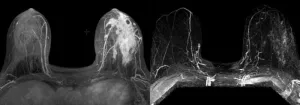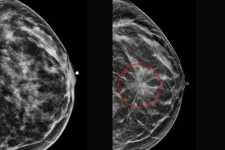(Press-News.org) Alexandria, VA – Members of the American Association for Dental, Oral, and Craniofacial Research (AADOCR) have elected Margherita R. Fontana, University of Michigan, Ann Arbor, as Vice-president, Julie Frantsve-Hawley, Temple University Kornberg School of Dentistry, Philadelphia, PA, as Treasurer, and Ariadne Letra, University of Pittsburgh School of Dental Medicine, PA, as Representative to the IADR/AADOCR Publications Committee. Their terms will commence at the conclusion of the 54th Annual Meeting of the AADOCR, which will be held in conjunction with 49th Annual Meeting of the Canadian Association for Dental Research, from March 12-14, 2024 in New York, NY.
Fontana is the Clifford Nelson Endowed Professor of Dentistry in the Department of Cariology, Restorative Sciences and Endodontics at University of Michigan School of Dentistry (U-M) where she is also the Director of the Global Initiatives Program in Oral and Craniofacial Health at the School of Dentistry. She received her DDS from the Universidad Central de Venezuela, Caracas and her PhD from Indiana University School of Dentistry, Indianapolis. An overarching goal in her dental career has been to mitigate the impact of dental caries, particularly among disadvantaged groups, which is reflected in her research and publications. Since obtaining her PhD, she has secured funding for and and managed numerous longitudinal caries clinical projects on dental caries arrest and prevention, as well as on the creation of easy-to-use risk tools for caries detection in primary healthcare settings. In 2012, Fontana received the USA Presidential Early Career Award for Scientists and Engineers (PECASE) for her work on caries risk assessment in children.
Fontana has served as Chair of the IADR Young Investigator Award Committee, the AADOCR Annual Session Committee, the IADR Innovation in Oral Care Award Committee, the IADR E.W. Borrow Memorial Award Committee, and the IADR Science Information Committee. She was selected as a 2017 AADOCR Fellow and served on the Editorial Board of the Journal of Dental Research from 2017 to 2020.
Frantsve-Hawley received her PhD in Genetics from Harvard University in 2002. She is currently President of Impact Health Strategies, Strategic Advisor of Evidence-Based Medicine at Sjögren's Foundation, and recently served as Interim Executive Director of the American Association of Public Health Dentistry (AAPHD), where she collaborated with the organization’s finance committee to drive changes in the fiscal reporting structure, better track income & expenses, and increased transparency on the Association’s financial status.
Frantsve-Hawley has been an active member of AADOCR since 2004, serving on numerous committees since 2013. Her roles have included chairing the AADOCR Ethics in Dental Research Committee (2020-21) and the AADOCR Annual Session Committee (2021-23), as well as a member of several others. Currently, she is a member of the IADR Constitution Committee and the AADOCR Development Committee. Outside of AADOCR, she is currently Treasurer of the IFLOSS Coalition, an Illinois non-profit, and a member of the Illinois Department of Public Health Oral Health Section Advisory Committee. She has also served on the Editorial Boards of Journal of the American Dental Association, Journal of Evidence-base Dental Practice, Journal of Public Health Dentistry, and Michigan Dental Association Journal, and was Editor-in-Chief the International Journal on Evidence-Based Practice for the Dental Hygienist from 2015-2017.
Letra has been a member of IADR for more than 20 years, starting as a graduate school member of the Brazilian Division of the IADR, and since 2006 as a member of the American division (AADOCR). She has taken several leadership roles within AADOCR’s committees and the IADR Scientific Groups and Networks, as well as serving as Chair of the William Gies Award Committee (2017) and the Young Investigators Award Committee (2021). She has been an officer in the Women in Science Network (WISN) since 2015, acting in various capacities until becoming President in 2018, and then re-elected Vice-President in 2022.
Letra is an active member of several other professional organizations, including the American Society of Human Genetics, the European Society of Human Genetics, the American Association of Endodontists, and the American Dental Education Association. Since 2020, she has been an associate editor of the Journal of Endodontics and is also a past associate editor of Scientific Reports. She has served as editorial board member for numerous medical and dental journals, including the Journal of Dental Research, Journal of Dental Research Clinical and Translational Research, American Journal of Human Genetics, American Journal of Medical Genetics, and several others. She was named Chair of the Research and Scientific Affairs Committee of the American Association of Endodontists (AAE), where her primary responsibility was coordinating research program efforts and overseeing research activities in the AAE research funding program.
About AADOCR
The American Association for Dental, Oral, and Craniofacial Research (AADOCR) is a nonprofit organization with a mission to drive dental, oral, and craniofacial research to advance health and well-being. AADOCR represents the individual scientists, clinician-scientists, dental professionals, and students based in academic, government, non-profit, and private-sector institutions who share our mission. AADOCR is the largest division of IADR. Learn more at www.aadocr.org.
END
AADOCR elects new Vice-president, Treasurer, and Representative to the IADR/AADOCR Publications Committee
2024-12-05
ELSE PRESS RELEASES FROM THIS DATE:
IADR elects Raul Garcia as Vice-president
2024-12-05
Alexandria, VA, USA – Members of the International Association for Dental, Oral, and Craniofacial Research (IADR) have elected Raul I. Garcia, Boston University, USA, to serve as Vice-president. His term will commence at the conclusion of the 103rd General Session of the IADR, which will be held in conjunction with the 2025 IADR Pan European Regional Congress from June 25-28, 2025 in Barcelona, Spain.
Garcia is Professor and Chair of the Department of Health Policy and Health Services Research at the Henry M. Goldman School of Dental Medicine at Boston University. He received his DMD and MMedSc from the Harvard ...
Seven researchers named to Battelle Distinguished Inventor cadre
2024-12-05
Seven scientists affiliated with the Department of Energy’s Oak Ridge National Laboratory have been named Battelle Distinguished Inventors in recognition of being granted 14 or more United States patents. Since Battelle began managing ORNL in 2000, 104 ORNL researchers have reached this milestone.
“These innovators have not only developed cutting-edge technologies, but they have also prioritized taking the steps to move them out into the marketplace, which is critical for adoption and broad impact,” said Susan Hubbard, ORNL deputy for science and technology. “The innovators are working on a range of strategies important for our ...
Gene therapy fixes major cause of stillbirth, premature birth in guinea pig model
2024-12-05
The life of billions of people inhabiting Earth is owed to a temporary organ that supported and nourished them in a mother’s womb.
The placenta, or afterbirth, is considered sacred by some cultures, its pivotal role in pregnancy recognized as far back as the raising of Egypt’s pyramids. It provides nutrients and oxygen to the fetus via the umbilical cord, acting like a gut, kidney, liver, and lungs.
If the placenta fails, only one hazardous option remains — premature delivery through induced labor or cesarean delivery.
Now, the first therapy to potentially ...
From one gene switch, many possible outcomes
2024-12-05
Within all complex, multicellular living systems such as plants and humans, there exists a set of genetic elements that can be likened to the blueprints, tools, and specialized personnel at a construction site for an expanding development. Plant biologists like Aman Husbands at the University of Pennsylvania study a family of skilled subcontractors, known as the HD-ZIPIII transcription factors (TFs). These subcontractors are tasked with deciding which blueprints, or genes, to follow as they guide the ...
Visiting Fellows selected for inaugural cohort of the Africa-UBC Oceans and Fisheries Visiting Fellows Program
2024-12-05
The Africa-UBC Oceans and Fisheries Visiting Fellows Program is extremely pleased to announce the selection of its inaugural laureates: Dr. Cynthia A. Adinortey (Ghana) and Dr. Antony Otinga Oteng’o (Kenya).
“We had many excellent applicants from across Sub-Saharan Africa. Ultimately, our Selection Committee selected these two exemplary scholars, and we are most happy with the result,” said Dr. William Cheung, professor and Director of UBC’s Institute for the Oceans and Fisheries (IOF), which administers the Program. “These two exemplary scholars will now have the opportunity to collaborate ...
Innovative immunotherapy shows promise in early clinical trial for breast cancer
2024-12-05
A groundbreaking phase one clinical trial exploring a novel cell-based immunotherapy for breast cancer has been accepted for publication in JAMA Oncology. The technology tested in the trial was co-developed by Gary Koski, Ph.D., professor in Kent State University’s Department of Biological Sciences, and Brian J. Czerniecki, M.D., Ph.D., chair and senior member in the Moffitt Cancer Center’s Department of Breast Oncology. The study focuses on a new treatment approach that aims to harness the body’s immune system to enhance patient responses ...
Whiteness as a fundamental determinant of health in rural America
2024-12-05
WASHINGTON -- White people in rural America have unique factors that drive worse health outcomes than their urban counterparts, prompting a team of public health researchers to label whiteness as a fundamental determinant of health. They say while the health and well-being of racially minoritized populations should continue to be a research priority they urge researchers to consider factors that influence the health of majoritized populations.
In an analytic essay, "Whiteness: A Fundamental Determinant of the Health of Rural White Americans,” published Dec. 5 in the American Journal of Public Health, Caroline Efird, PhD, MPH, ...
Analyzing multiple mammograms improves breast cancer risk prediction
2024-12-05
A new study from Washington University School of Medicine in St. Louis describes an innovative method of analyzing mammograms that significantly improves the accuracy of predicting the risk of breast cancer development over the following five years. Using up to three years of previous mammograms, the new method identified individuals at high risk of developing breast cancer 2.3 times more accurately than the standard method, which is based on questionnaires assessing clinical risk factors alone, such as age, race and family history of breast cancer.
The study is published ...
Molecular zip code draws killer T cells straight to brain tumors
2024-12-05
More information, including a copy of the paper, can be found online at the Science press package at https://www.eurekalert.org/press/scipak.
Molecular Zip Code Draws Killer T Cells Straight to Brain Tumors
Researchers have found a way to program immune cells to attack glioblastoma and treat the inflammation of multiple sclerosis in mice. The technology will soon be tested in a clinical trial for people with glioblastoma.
UCSF scientists have developed a “molecular GPS” to guide immune cells into the brain and kill tumors without harming healthy tissue.
This living cell therapy can navigate through the body to a specific organ, addressing ...
Engineered immune cells may be able to tame inflammation
2024-12-05
More information, including a copy of the paper, can be found online at the Science press package at https://www.eurekalert.org/press/scipak.
Engineered Immune Cells May Be Able to Tame Inflammation
Immune cells that are designed to soothe could improve treatment for organ transplants, type 1 diabetes and other autoimmune conditions.
When the immune system overreacts and starts attacking the body, the only option may be to shut the entire system down and risk developing infections or cancer.
But now, scientists at UC San Francisco may have found a more precise way to dial the immune system down.
The technology ...




